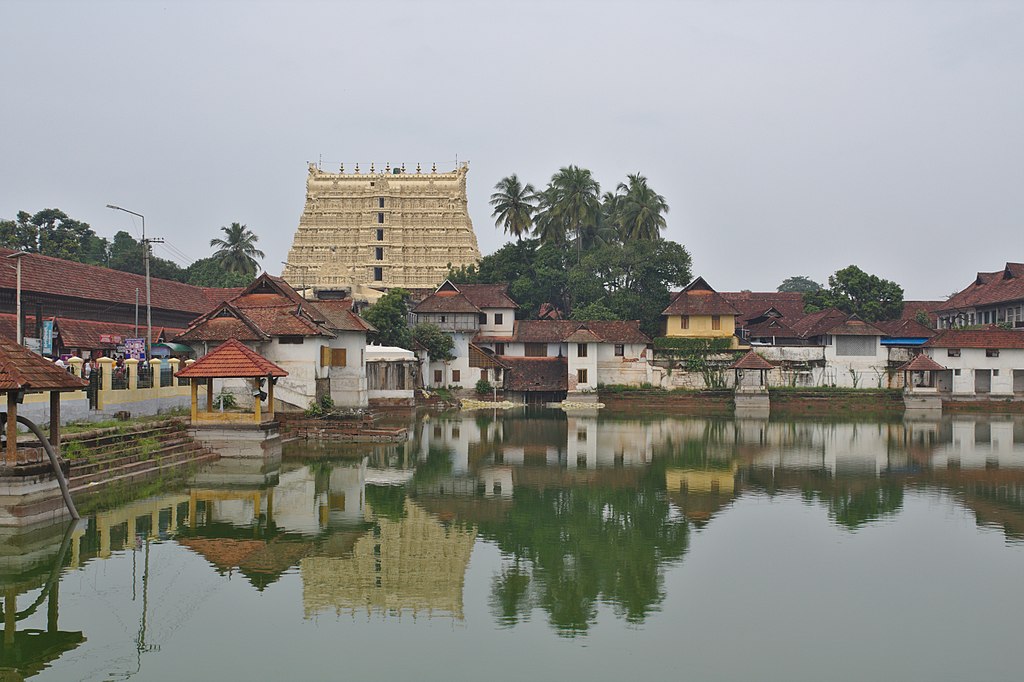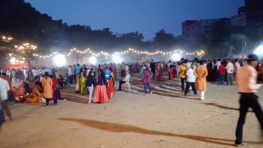
Temple is the house of the Deity and the temple wealth belongs to the Deity alone and not to the Hindu community. This concept must be well understood. People do not donate to the temple because they expect some returns or financial benefits from the temple in the future. The contributions are voluntary and thus the wealth available in the temple hundis and other physical wealth is to be enjoyed by the deity alone according to his wishes. Hindu deities are very considerate and thus they may allow the usage of the wealth for the general good of the community. This is only a kind consideration by the deity and not a right of the Hindus. But the Indians being secular began to think as temple wealth as income of the deity which should be used for the sake of the community. But deity has his own wishes and thoughts about how the money to be spend. The guidance is provided through his servants, devotees but our state has made a joke on the deity by putting its officials to manage the wealth and throwing some pittance for the welfare of the deity.
The sad situation of Hindu deities has started because Hindus are not united. There are different categories of Hindus each with a particular interest in matters related to Hindu Temples.
- The namesake Hindu but craving applause from the anti-Hindus. These are people who are the most dangerous and put all their intelligence and that of others to destroy the temple culture one way or the other.
- The bigoted Hindus who want to continue the practice of real untouchability and pankthi bhedha to continue even in the modern times. They think certain communities have the right to have special privileges in the temples they have some control and want to continue the privileges. These are not dangerous people but can cause a lot of resentment among various temple going communities.
- The devout Hindus are the rarest Hindus. These are people who have the utmost belief in the deity and are not really concerned about the wealth. They visit the temple mainly to take darshan of the deity and all other things good or bad happening are not a matter of concern. As long as the rituals concerning the deity are happening as per precedence, then they are happy otherwise they are not happy.
- The woke Hindus go to the temples to learn but to question everything with no intention of learning. These groups donot want the destruction of the temple culture but what the temple culture to become progressive aka woke to meet their standards. Given a chance this group will remove any kind of traditional practices followed in the temple, just because they could. These people have namesake Hindus as their idols. Their concerns are not welfare of the deity nor its wealth. They want to spend the wealth not on the issues related to deity but all other issues because spending money on deity is a waste.
- The helpless Hindu are those who were the original trustees or holding the reins of the temple and their rights have been usurped by the state and members of various communities. They try to take legal recourse in the hope of getting control of the temple but our super moral courts keep chipping away their rights because of the constitutional morality. These people never stop fighting because they are more bothered about the temple culture, maintenance and service to the deity and these are the people who are trampled by all others.
- The greedy Hindus are the most special group of the Hindus and their only issue is the gratification of personal greed. They are only bothered about the wealth of deity and how they could make it their personal wealth. The mechanism of transfer is important and these people are very dangerous. They can appear as devout Hindus but unmasking them will tell their true nature.
- The ordinary Hindu is a non-fighting uninterested ever complaining Hindu. This Hindu will go to temples regularly, put money in Hindu and donate various causes related to temples. He is almost never satisfied with the facilities provided at the temple complex. He will never take a strong stand against the members of the temple management even though he was powers because he is not really concerned. He is more interested in talk than walk the talk. He will use his powers available with him for showing off to his family members, friends, by arranging special darshans, etc. He can be a powerful citizen, but yet his concern his polishing his own credential. If he is an ordinary citizen, he will perform his duties in the temple and move away because, he knows he cannot do much.
- The fighting Hindu. This rare breed of Hindus is second rarest group but their voices are growing louder. Their concern is only the rule of law and correct maintenance of procedures related to the wealth and rituals of the deity. They will keep fighting till the end of times in both physical, legal, ideological realms and the fight is usually against the state and the community and other Hindus.
The fighting Hindu, devout Hindu and Helpless Hindu are the real serious Hindus and rest others are dangers to the temple in one way or the other. The ordinary Hindu is the giving numbers and giving wealth to the temple. The state and courts will never side with these groups because of secular and constitutional obligations unless the fight is taken very seriously by the Hindus and the bone headed super intelligent judiciary is made to see the facts in true light. This is a herculean task but it happens with enormous efforts taking away a lot of time and resources from the really concerned people. The state is simply draining away the resources of the Hindus with their constitutional moral indulgences.
In the opinion forests there are two main opinions concerned with temples and their governance. The first being, India is a Hindu majority country or Hindu country and the state government is morally duty bound to take care of the temples in the best possible way. The second being, India being a secular country, the state has no business to be in management of the temples. At a personal level, I am in favour of the later opinion because the configuration of the state and its members can change with circumstances and it should not have any adverse effects on the management temple, Hence the temple and its wealth must be at arm’s distance from the state and its officials. In a discriminatory democracy, the rights of Hindus can be trampled very easily. If the fight is taken to streets, the state will come down brutally and if taken to the courts the cases can be dragged on for decades without stay on adverse judgements or maintaining status quo as per a previous accepted condition.
The feelings, concerns of the devout Hindu and helpless Hindu are never heard by the state. The state is more concerned with the woke Hindus, bigoted Hindus, namesake Hindus and greedy Hindus. In the next part we shall see the effects of state on the temples, the deity living in the temple and how fighting Hindus are trying to push the state out of the temple.
Author: Vijendra Bhat can be reached on Twitter
Twitter: @SPHEREHEADSAYS
Picture Credit: Shishirdasika




